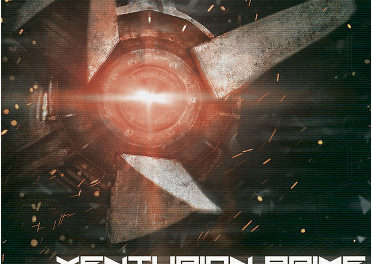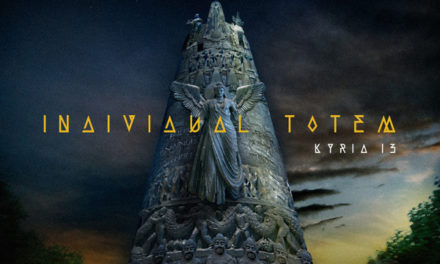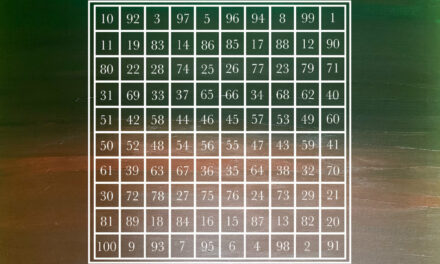
Lead Into Gold
Knife The Ally
Artoffact Records
Knife the Ally is Lead Into Gold’s third album since Paul Barker reactivated the project, and seems to be a culmination of the celebrated producer and bassist’s approach to music in this millennium. Where 2018’s The Sun Behind The Sun referred back to the classic Wax Trax sound that Barker helped define with his work as a producer and member of Ministry during that band’s imperial period, and 2023’s The Eternal Present looked forward into an abstracted version of industrial rock, 2025’s Knife The Ally finds the mid-point between its predecessors; it’s a record that features both clamorous programmed percussion and deep bass rhythms, but departs from standard industrial rock song structures in intriguing fashion.
A track like “Lionize” nicely encapsulates the current ethos of Lead Into Gold; it’s got familiar rolling drums and strategically placed samples of ghostly melodies and noisy squeals, while its bassline and Barker’s weird, keening vocal establish a much chiller and more freeform groove between the spikes of the more aggressive sounds. Elsewhere, the title track opens with a short loop of mechanical noise that becomes the basis for an escalating charge forward, never resolving its movement between verse and chorus, but adding weight with each layer of synths and noise until it all comes to a crashing halt.
Sometimes low-to-the-ground and smooth (the economical industrial dub of “It’s All a Sign”), sometimes strident and forceful (the piston-pumping mid-tempo attack of “From Tomorrow”), Knife the Ally is rarely calm, but conversely rarely chaotic. As with his best classic and modern material, Barker understands the value of centering rhythm and movement in his compositions, never derailing or getting stuck running in circles. Listen to how he turns the lope of closer “Dripping from the Hilt” into a slow motion swirl of textures, half-waltz, half atonal avant-garde modular synth workout, all joined via a simple assembly of drums and bass. Alternately, the abrasive “We Can Be Paralyzed” is all rusted out cymbals and distorted synthlines but stays in a pocket with root-note bass and simple kick-snares. There’s always a lot going on sonically, but the economy of the track times helps it all stay on course; at less than a half-hour in length, no song on the record has time to exhaust itself, or the listener.
Knife the Ally is a record that splits the difference between Barker’s work as a technician and as an artist, and nicely highlights his proficiency in both. While not strictly improvisational and never loose structurally, it does have an almost jazz-like experimentalism in its heart: it’s an exploration of possibilities within established forms that only those who have already mastered their standard shape can undertake. Paul Barker is a musician of that calibre in the world of post-industrial, and this is him showing where he can take the sounds and ideas he helped pioneer.





